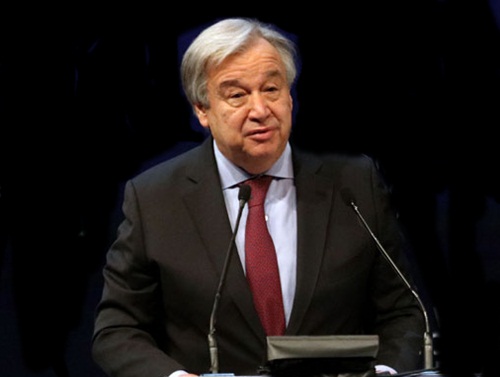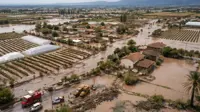The United Nations ended the year 2018 with a negative cash balance of $323 million against a positive cash balance of $412 million at the end of 2010, a decline of $735 million over an eight-year period, UN Secretary General Antonio Guterres pointed out in his annual report.
Guterres said member states are required to pay their contributions in full within 30 days after regular budget assessments are issued at the beginning of each year.
He said, in 2017 and 2018, 73 member states paid their contributions in full by the end of the first quarter, compared with 62 in 2016 and 67 in 2015. So far, 74 member states have paid in full in 2019.
“Regrettably, some member states pay neither in full nor on time. The level of arrears at the end of 2018 was $529 million, equivalent to more than 21 per cent of that year’s assessments and nearly 150 per cent of the liquidity reserves,” he said.
Voicing concern over the world body’s deteriorating financial health, the Secretary-General said the United Nations owed India $38 million, the highest it has to pay to any country, for the peacekeeping operations as of March 2019.
In his report on improving the financial situation of the world body, he said, as of 31 March 2019, the total amount payable to troop- and police-contributing countries with respect to active peacekeeping missions was $265 million.
Of this, the UN owed $38 million to India, followed by Rwanda ($31 million), Pakistan ($28 million), Bangladesh ($25 million) and Nepal ($23 million), Guterres said in his report.
He said the arrears to troop- and police-contributing (TCCs/PCCs) countries could increase to $588 million by June 2019 “in the worst-case scenario”.
The UN chief said that payments for services to troop- and police-contributing countries depended on the cash position of the individual missions and is not determined by their individual capacity to shoulder that unfair burden.
“That has created a paradox. The United Nations is now effectively borrowing for prolonged periods from troop- and police-contributing countries. Many of them are low-income countries for which that imposes a significant financial burden. At the same time, the Organisation is asking those same countries to do more to train their personnel and improve the quality of their equipment, all the while operating in increasingly challenging environments. The United Nations, however, is not fulfilling its obligation towards them in a timely manner,” he said.
Guterres said troop- and police-contributing countries made every effort to provide well-trained and well-equipped personnel to peacekeeping operations, and they continued to improve on that objective.
“Reimbursement by the UN for their contributions is key to supporting those efforts. The delays in reimbursing the contributing countries expose them to financial challenges in pursuit of their efforts and consequently have an adverse impact on the operations and the delivery of their mandates,” he said.
Earlier this year, India’s Permanent Representative to the UN Syed Akbaruddin had said that the “financial situation of the United Nations”, particularly the non-payment/delayed payment of arrears to the troop/police contributing countries, is a “cause for concern”.
He had said that the practice of delaying payments to TCCs/PCCs, even as contractual obligations to others are met, could not continue unaddressed.
“It results in TCCs/PCCs bearing unsustainable burdens. In some cases, TCCs and PCCs are owed 100 to 200 times their cumulative annual financial contributions to the UN,” he had said.
Guterres said while the UN is working to become more effective, nimble, accountable, transparent and efficient, the success of the organisation’s efforts depends not only on the internal efforts of the Secretariat, but also on the support of member states and on the predictability and adequacy of their financial contributions to UN programmes and activities.
The UN chief said the world body is facing deepening liquidity problems in its regular budget, a trend that must be urgently halted and reversed.
“Peacekeeping operations also face frequent cash constraints that forced the Organisation to postpone the settlement of its obligations to troop- and police-contributing countries,” he said.
Meanwhile, ministers, senior UN officials, high-level finance officials, civil society, business representatives and local authorities, are meeting at UN Headquarters for the four-day FfD Forum, as it is known for short.
Guterres said climate change, greenhouse gas emissions and technologies disrupting labour markets, were a major challenge, saying “We are here today as part of an effort to coordinate an urgent global response to reverse these trends”.
“Simply put,” he spelled out “we need more money to implement the Sustainable Development Goals”.
Noting that development aid remains essential, “especially for the poorest countries”, the UN chief shone a light on the importance of countries themselves generating more funding, including by increasing tax revenue and the impact of investment.
“National policy frameworks are key to reducing risks, creating an enabling business environment, incentivising investment in public goals, and aligning financial systems with long-term sustainable development”, he stated.




















